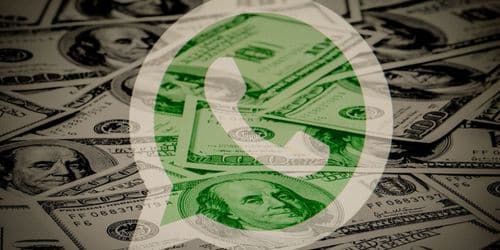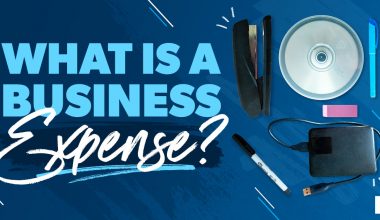WhatsApp is a messaging app that allows users to communicate with one another via text, audio, or video.
WhatsApp earns money by charging fees for its Business API offering and a transaction fee for WhatsApp Pay.
Here, we’ll go over how WhatsApp makes money in the competitive world of instant messaging.
What Is WhatsApp and How Does It Function?
WhatsApp is a messaging program that allows users to interact via text, audio, and video.
WhatsApp is accessible through its tablet and smartphone apps (available on Android and iOS devices) and its web application (called WhatsApp Web).
Users can connect with one another either individually (in private chats) or in groups of up to 512 people.
WhatsApp’s platform is end-to-end encrypted, meaning that chat users can only read messages.
Users can send emoticons, GIFs, voice messages, images, videos, and even documents in addition to text messages. They can also respond to text messages.
Users who want to share their unique moments can do so through WhatsApp’s Stories feature. These moments are then exposed to anyone who saved the contact for 24 hours.
In addition to its consumer application, WhatsApp provides a commercial communication solution (named WhatsApp Business). Companies can:
- Create business profiles that include helpful information for their customers (such as an address, email addresses, or a link to their website)
- Labeling contacts to improve categorization
- Automated messages and prompt responses
- Broadcasts (similar to a newsletter) (similar to a newsletter)
WhatsApp Business is designed for small enterprises. If a company has a larger size, it can use WhatsApp’s Business API, which provides an API endpoint that allows it to be integrated with current business software.
WhatsApp is used by over 2 billion individuals in over 180 countries worldwide. As such, it is the largest communication platform on the planet.
Does Facebook Profit From WhatsApp?
Because they control the WhatsApp brand, any money generated by the messaging program goes directly to Facebook and its stockholders.
Facebook purchased Whatsapp in 2014 for a staggering $19 billion. With such a significant investment, it stands to reason that Facebook would want to monetize the platform as much as possible.
Facebook was already the market leader in the “free-to-use” platform field, and the inclusion of Whatsapp strengthened its position even further.
Facebook has a track record of purchasing and enhancing successful brands; it purchased Instagram in 2012 and has watched its user base skyrocket.
How Does WhatsApp Make Money Without Advertisements?
WhatsApp now has various income streams that make money for the corporation.
This revenue creation keeps advertisements out of the app and ensures that millions of users have free access to the platform.
WhatsApp’s three primary revenue streams are as follows:
- API for WhatsApp For Business
- Payments via WhatsApp
- Go to WhatsApp advertisements
To comprehend them better, let’s take a closer look at WhatsApp’s existing revenue sources.
#1. WhatsApp Business
The WhatsApp Business App allows enterprises to service clients on WhatsApp by creating product catalogs and providing customer care. While the Business App is free to use, WhatsApp monetizes the service through the WhatsApp for Business API. A month after the WhatsApp Business API was launched, prominent internet companies like Netflix, Uber, Wish, and 100 others began testing the service.
WhatsApp generated money in the early days of the WhatsApp for Business API by charging registered firms for delayed replies. Businesses may respond to user messages for free for up to 24 hours, but they were charged a price per message for delayed responses, which varied by country.
The new WhatsApp for Business API allows organizations to have the first 1000 chats for free, but after that, they must pay a specific sum per communication, which varies by country.
#2. WhatsApp Pay
WhatsApp has displayed a strategic tendency toward monetizing the service through businesses in recent years, and WhatsApp Pay is another example of this. While WhatsApp Pay is a free service for end users, companies must pay a flat cost of 3.99% for each transaction. WhatsApp Pay was only available in India and Brazil at the time of publication.
#3. Indirect Revenue from ‘Click to WhatsApp ads’
Besides WhatsApp For Business and WhatsApp Pay, WhatsApp also makes money through Click to WhatsApp advertisements, which are not adverts visible on Facebook or WhatsApp but divert people from Facebook to WhatsApp.
Because these adverts are not displayed in the WhatsApp app, attributing their earnings solely to WhatsApp would be wrong; instead, it is one of how Facebook uses WhatsApp to raise revenue.
What is the Price of the WhatsApp Business API?
WhatsApp Business is a powerful and sophisticated product with a subscription basis.
The Business API is a significant source of revenue for WhatsApp, and the service’s quality has only grown over time as more businesses participate.
There are a few charges involved with the API that any business owner should think about before investing. Here’s a quick breakdown of the most important ones:
#1. Monthly fees:
To receive access to the API, you must work with one of the official WhatsApp providers.
There are several different providers, and their prices vary greatly. Some companies charge £75 per month for the service, while others price close to £500.
#2. Set-up fee:
Depending on the provider you select for your Business API, you may be required to pay an extra set-up price. This is usually determined by the number of numbers you want to add to the network.
It’s important to note that just because a service doesn’t charge set-up costs doesn’t guarantee it’ll be the cheapest in the long run.
#3. Conversation Fee
Previously, WhatsApp charged business users based on the number of messages they sent to colleagues. This charge is now determined per talk.
This is a positive adjustment because it discourages users from cramming too much information into a single WhatsApp message.
Does WhatsApp Make a Profit?
Although most of its users are free, WhatsApp is profitable.
Most of these earnings are generated by the premium models WhatsApp has developed for businesses. However, WhatsApp’s owner, Facebook, sees the messaging network as having far more power than direct monetization.
WhatsApp is merely another social media network added to Facebook’s portfolio.
By managing several websites and apps, Facebook can drive and rotate customers among them, increasing long-term revenue.
With features like end-to-end encryption and always-on servers, WhatsApp will most likely continue to dominate the instant messaging software market for years.
How Many People Use Whatsapp?
According to industry projections, WhatsApp will have more than 2 billion users globally by 2023.
Is WhatsApp Truly Safe and Private?
Yes, WhatsApp messages, including text, photos, and other material, are encrypted end-to-end. This implies they cannot be intercepted or read while being transmitted.
Does WhatsApp Make Profit?
Yes, WhatsApp’s parent company, Meta, made more than $8.7 billion in sales in 2021. (formerly Facebook).
How Did WhatsApp make Money In The Past?
Before the deployment of the free-to-use model, WhatsApp made money through a paid subscription service. WhatsApp paid consumers £0.69 per year to use the service.
This may not seem like much, but since WhatsApp had 250 million users before converting to a free model, it’s evident that they were taking a significant risk by making that transition.
The gamble, of course, paid off, and it’s become clear that a free model with additional paid services is the most profitable for the platform.
While WhatsApp is free, a popular WhatsApp scam attempts to persuade individuals to pay or provide bank information.
How Does Whatsapp Intend to Make Money in the Future?
It’s unclear whether WhatsApp intends to integrate more monetization into its platform in the future.
We know that the platform will keep supporting their Business API tool and expand the payment mechanism to new locations.
The payment mechanism, in particular, might be a significant future revenue generator for the organization.
Making payments directly from an instant messaging network has numerous applications and is undoubtedly a service people would welcome immediately.
It has also been reported that WhatsApp would begin to display advertisements in the app’s Status area.
This would be a direct revenue source, and the corporation is probably under pressure to execute it.
WhatsApp’s economic model is very unusual, and investors will likely want to see more tried and trusted monetization tactics implemented on the service.
How Much Money Does WhatsApp Make?
At the time of the previous calculation, WhatsApp’s annual revenue was expected to be $5 billion.
This came after the platform abandoned its $0.99-per-year pricing in favor of its current free-to-use arrangement.
However, given that most users do not pay for the service, it is apparent that WhatsApp For Business and Pay are doing it admirably.
With this level of success, it’s unlikely that WhatsApp will ever return to a subscription model for regular users.
And it’s not simply the direct revenue generated by WhatsApp that matters. If Facebook can get people to use WhatsApp, they can persuade people to use their other services as well.
Funding and Value of WhatsApp
WhatsApp Inc. drew the attention of venture capitalists and tech investors’ attention immediately after its debut.
Sequoia Capital invested $8 million in the platform in 2011 and was one of the site’s early backers. Sequoia invested an additional $52 million in 2013.
Sequoia’s investment paid off handsomely when Facebook purchased WhatsApp in 2014. Of course, since being placed under the umbrella of the massive internet corporation, WhatsApp has not had many funding issues.
Creating a proper valuation for WhatsApp is challenging, especially given how tightly it is linked to other Meta services.
With that said, if WhatsApp went public today, it would most likely be worth considerably more than the $19 billion paid by Facebook, which was a staggeringly enormous deal at the time.
End-to-End Encryption Debate
WhatsApp and other messaging services (including Apple) have been in hot water with governments worldwide after discovering that terrorists used applications to communicate before and during attacks.
Governments and counter-terrorism authorities requested the corporations behind these apps to reveal the encryption key to access terrorists’ texts sent and received. However, the corporations refused to comply. This prompted WhatsApp to implement end-to-end encryption, which stops anyone, even WhatsApp, from accessing the data transmitted on the app except the sender and receiver.
Conclusion
WhatsApp has become one of the world’s most popular messaging platforms, with plenty of possibilities for expansion. Whether you feel Meta overpaid for WhatsApp or not, the truth remains that the app has a growing revenue stream with limitless potential that will allow it to generate more revenue over time.
Related Articles
- WHATSAPP LOGO: Meaning, Messenger, web, and For Pc.
- Sustainable Competitive Advantage: Simple Steps to Gain a Sustainable Competitive Advantage
- HOW DOES FACEBOOK MAKE MONEY IN 2023
- API MANAGEMENT TOOLS: What It Is, Top and Best API Management Tools
- WHATSAPP BUSINESS: Best Easy Practices to Scale Your Business






